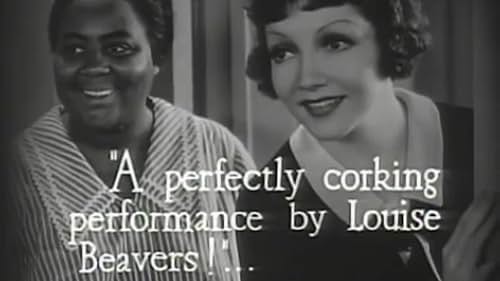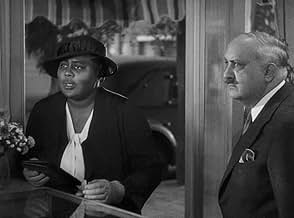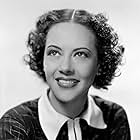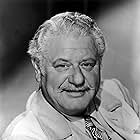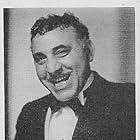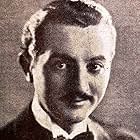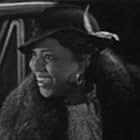VALUTAZIONE IMDb
7,5/10
5772
LA TUA VALUTAZIONE
Una vedova in difficoltà e sua figlia assumono una cameriera di colore e sua figlia. Le due donne iniziano lavorando sodo ma devono affrontare problemi di identità e di razzismo.Una vedova in difficoltà e sua figlia assumono una cameriera di colore e sua figlia. Le due donne iniziano lavorando sodo ma devono affrontare problemi di identità e di razzismo.Una vedova in difficoltà e sua figlia assumono una cameriera di colore e sua figlia. Le due donne iniziano lavorando sodo ma devono affrontare problemi di identità e di razzismo.
- Candidato a 3 Oscar
- 1 vittoria e 3 candidature totali
Juanita Quigley
- Baby Jessie Pullman
- (as Baby Jane)
Monya Andre
- Party Guest
- (non citato nei titoli originali)
Alyce Ardell
- French Maid
- (non citato nei titoli originali)
William Austin
- Englishman at Party
- (non citato nei titoli originali)
Dorothy Black
- Peola at 10
- (non citato nei titoli originali)
Edna Bowdoin
- Black Secretary
- (non citato nei titoli originali)
Tyler Brooke
- Tipsy Man at Party
- (non citato nei titoli originali)
Daisy Bufford
- Black Waitress
- (non citato nei titoli originali)
Curry Lee Calmes
- Black Chauffeur
- (non citato nei titoli originali)
Trama
Lo sapevi?
- QuizFredi Washington (Peola at 19) was a light-skinned African-American. After playing this role, she was criticized by some in the Black community who labored under the misconception that the actress herself practiced self-hatred and would rather 'pass' herself off as white. In fact, Ms. Washington was an avid civil-rights activist.
- BlooperWhen baby Jessie falls into the bathtub going after her rubber ducky, there is an obvious edit between her falling in and the splash of water coming out of the tub as evidenced by the shifting of the towel and the shadows from the light coming in through the window on the tile wall behind the tub.
- Citazioni
Delilah Johnson: What's my baby want?
Peola Johnson, Age 19: I want to be white, like I look.
Delilah Johnson: Peola!
Peola Johnson, Age 19: [gesturing to mirror] Look at me. Am I not white? Isn't that a white girl?
- Curiosità sui creditiEnd credits titled at the top "A great cast is worth repeating".
- Versioni alternativeThe original theatrical release print of Imitation of Life featured different title cards, including a title card containing a brief prologue, which read: "Atlantic City, in 1919, was not just a boardwalk, rolling-chairs and expensive hotels where bridal couples spent their honeymoons. A few blocks from the gaiety of the famous boardwalk, permanent citizens of the town lived and worked and reared families just like people in less glamorous cities." When the film was reissued by Universal in 1938, the title cards were changed, and the prologue card was removed. All current prints of the film, including those used for the VHS and DVD releases, are struck from the 1938 re-release version.
- ConnessioniFeatured in The Universal Story (1996)
- Colonne sonoreNobody Knows de Trouble I've Seen
(uncredited)
Traditional Negro Spiritual
Lyrics by Henry Thacker Burleigh
Played and sung by an offscreen chorus during the opening credits
Played as background music often
Recensione in evidenza
When Imitation Of Life came out in 1934, Fannie Hurst was at the height of her literary reputation having had her two best works this one and Back Street, come out back to back as both novels and movies. Both stories are about a women's sacrifice.
One day before World War I, Louise Beavers comes looking for domestic work and gets the wrong address and comes knocking on Claudette Colbert's door. Colbert is a recent widow with a child and Louise has a child the same age. Colbert can't afford any salary, but Louise is willing to work cheap, just for room and board for herself and her child.
This starts an unusual partnership both personal and business because Claudette's late husband was a seller of a cooking syrup and Louise makes a melt in your mouth type of pancake. When passing stranger Ned Sparks tells her one day to package the flour, this makes both Colbert and Beavers millionaires overnight. Beavers can't see it however and passes up her own household to stay with Claudette.
A lot of people today look at Beavers's character and say this is a racial stereotype that Hurst was perpetrating. Taking the racial component out of it, I've seen several people who are just like Beavers in their own way. Clark Gable had a father who could have lived quite well off his son, but couldn't deal with the Hollywood lifestyle and actually told his son they ought to resume their previous occupations as oil roughnecks. Stan Musial when he was making big money as a baseball star had a mother who took in washing back in the little steel mill town of Donora, Pennsylvania where he came from and not because he wasn't willing to provide.
And I had an uncle who worked hard at Kodak and also built up a milk delivery business of his own and at an age where he could have just relaxed and taken it easy, he was out working at close to 80 at a tool and die plant. There are folks out there who shy away from the outward trappings of success like Beavers. And there are those stubbornly over-committed to a work ethic when they don't have to be.
Both Colbert and Beavers are just moms with problem daughters on their hands. Daughter Rochelle Hudson is crushing out on Warren William who has his eyes on Colbert. But Beavers has bigger problems.
Remember these girls were literally raised together with their mothers in business. Fredi Washington sees the white world, she's light skinned enough to pass, she wants what's over in that world. But her denial of heritage hurts Beavers more than my words can describe. But Hurst's words in the novel and the screenplay betray a rare understanding of racism during her time.
Imitation of Life got three Oscar nominations including Best Picture. It's a dated film, but that fact alone makes it worth watching as a glimpse of the racial picture in America in the Thirties.
One day before World War I, Louise Beavers comes looking for domestic work and gets the wrong address and comes knocking on Claudette Colbert's door. Colbert is a recent widow with a child and Louise has a child the same age. Colbert can't afford any salary, but Louise is willing to work cheap, just for room and board for herself and her child.
This starts an unusual partnership both personal and business because Claudette's late husband was a seller of a cooking syrup and Louise makes a melt in your mouth type of pancake. When passing stranger Ned Sparks tells her one day to package the flour, this makes both Colbert and Beavers millionaires overnight. Beavers can't see it however and passes up her own household to stay with Claudette.
A lot of people today look at Beavers's character and say this is a racial stereotype that Hurst was perpetrating. Taking the racial component out of it, I've seen several people who are just like Beavers in their own way. Clark Gable had a father who could have lived quite well off his son, but couldn't deal with the Hollywood lifestyle and actually told his son they ought to resume their previous occupations as oil roughnecks. Stan Musial when he was making big money as a baseball star had a mother who took in washing back in the little steel mill town of Donora, Pennsylvania where he came from and not because he wasn't willing to provide.
And I had an uncle who worked hard at Kodak and also built up a milk delivery business of his own and at an age where he could have just relaxed and taken it easy, he was out working at close to 80 at a tool and die plant. There are folks out there who shy away from the outward trappings of success like Beavers. And there are those stubbornly over-committed to a work ethic when they don't have to be.
Both Colbert and Beavers are just moms with problem daughters on their hands. Daughter Rochelle Hudson is crushing out on Warren William who has his eyes on Colbert. But Beavers has bigger problems.
Remember these girls were literally raised together with their mothers in business. Fredi Washington sees the white world, she's light skinned enough to pass, she wants what's over in that world. But her denial of heritage hurts Beavers more than my words can describe. But Hurst's words in the novel and the screenplay betray a rare understanding of racism during her time.
Imitation of Life got three Oscar nominations including Best Picture. It's a dated film, but that fact alone makes it worth watching as a glimpse of the racial picture in America in the Thirties.
- bkoganbing
- 2 nov 2008
- Permalink
I più visti
Accedi per valutare e creare un elenco di titoli salvati per ottenere consigli personalizzati
- How long is Imitation of Life?Powered by Alexa
Dettagli
- Data di uscita
- Paese di origine
- Lingua
- Celebre anche come
- Imitation of Life
- Luoghi delle riprese
- Azienda produttrice
- Vedi altri crediti dell’azienda su IMDbPro
- Tempo di esecuzione1 ora 51 minuti
- Colore
- Proporzioni
- 1.37 : 1
Contribuisci a questa pagina
Suggerisci una modifica o aggiungi i contenuti mancanti

Divario superiore
By what name was Lo specchio della vita (1934) officially released in India in English?
Rispondi
